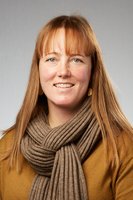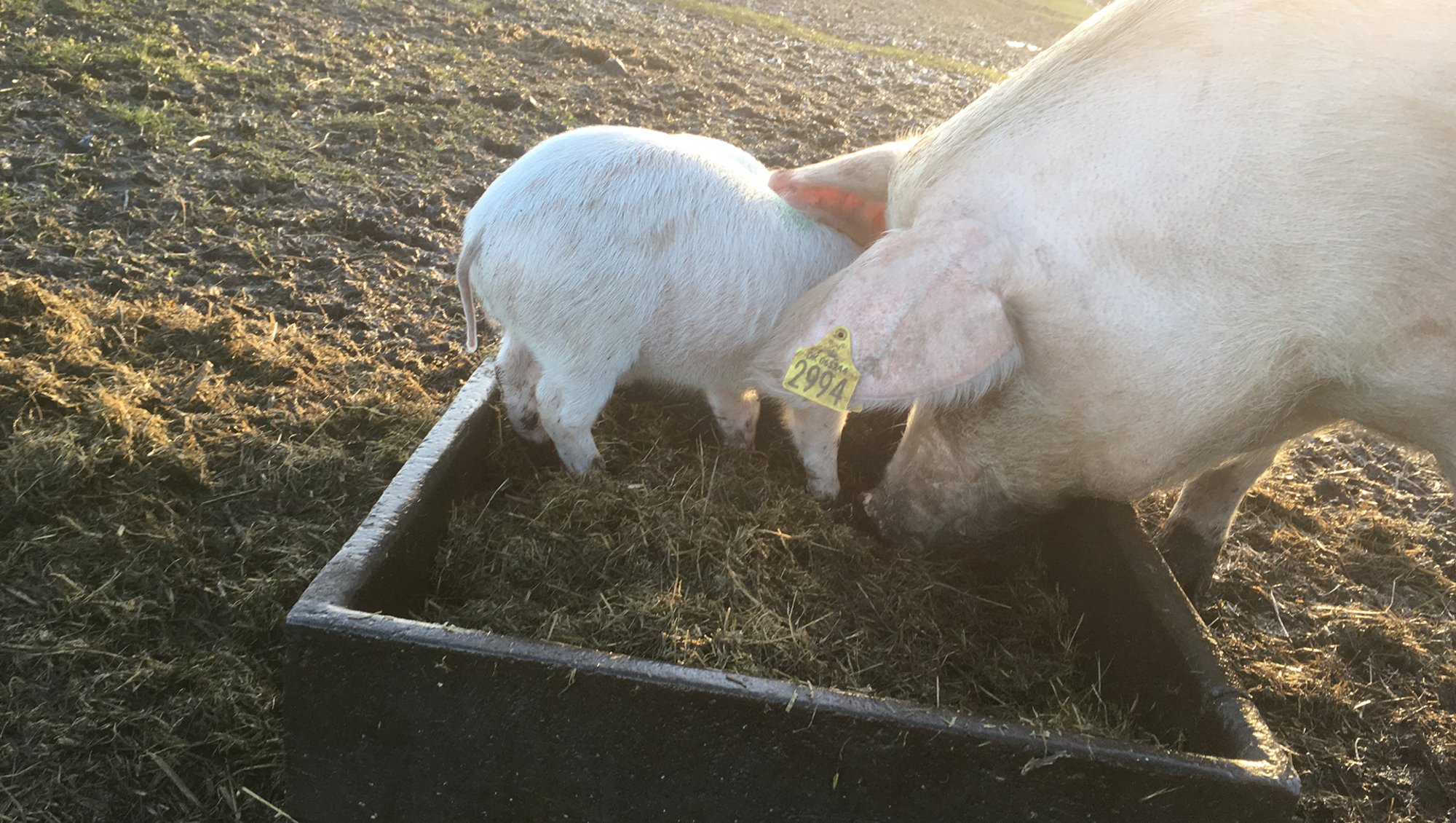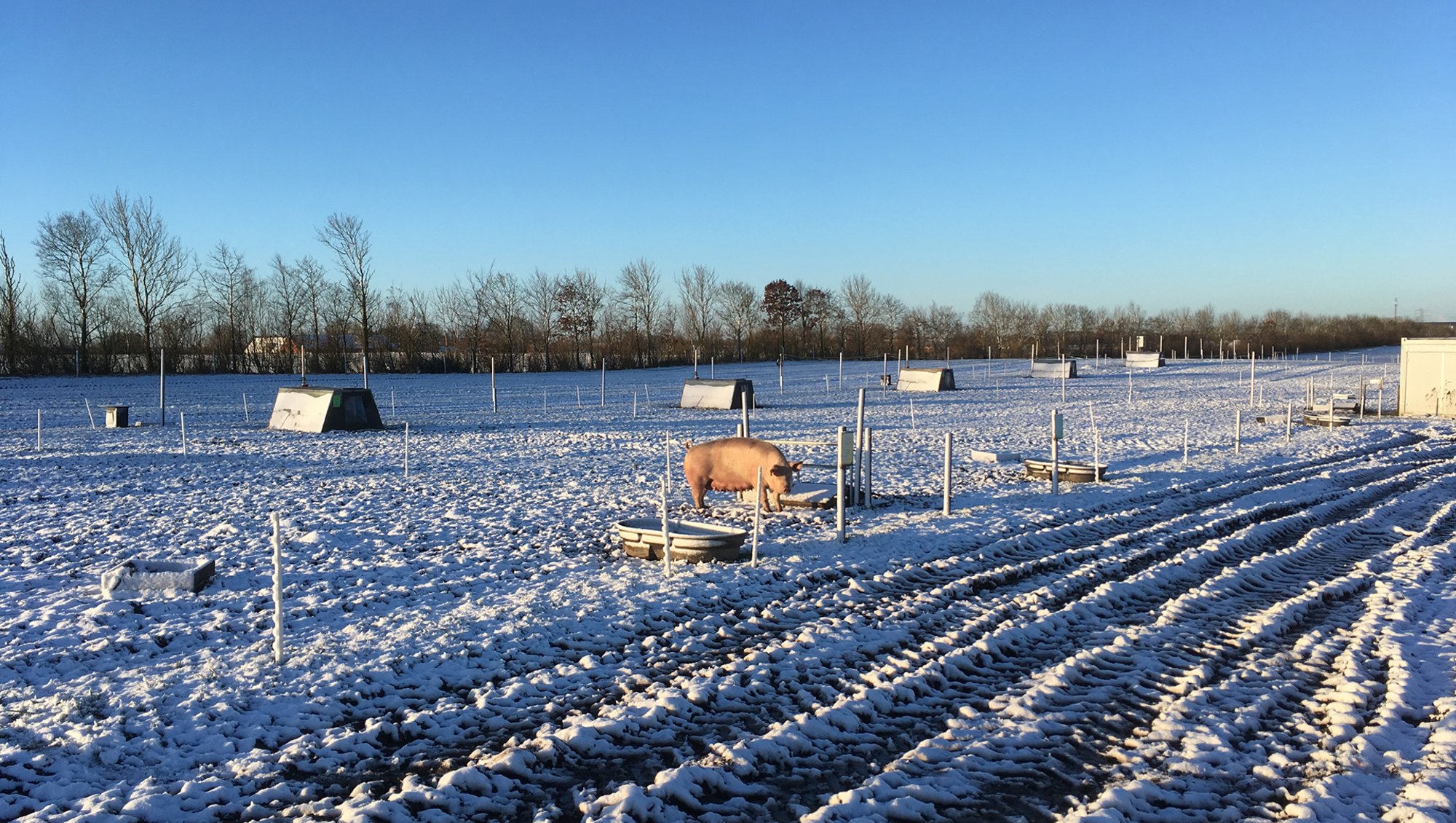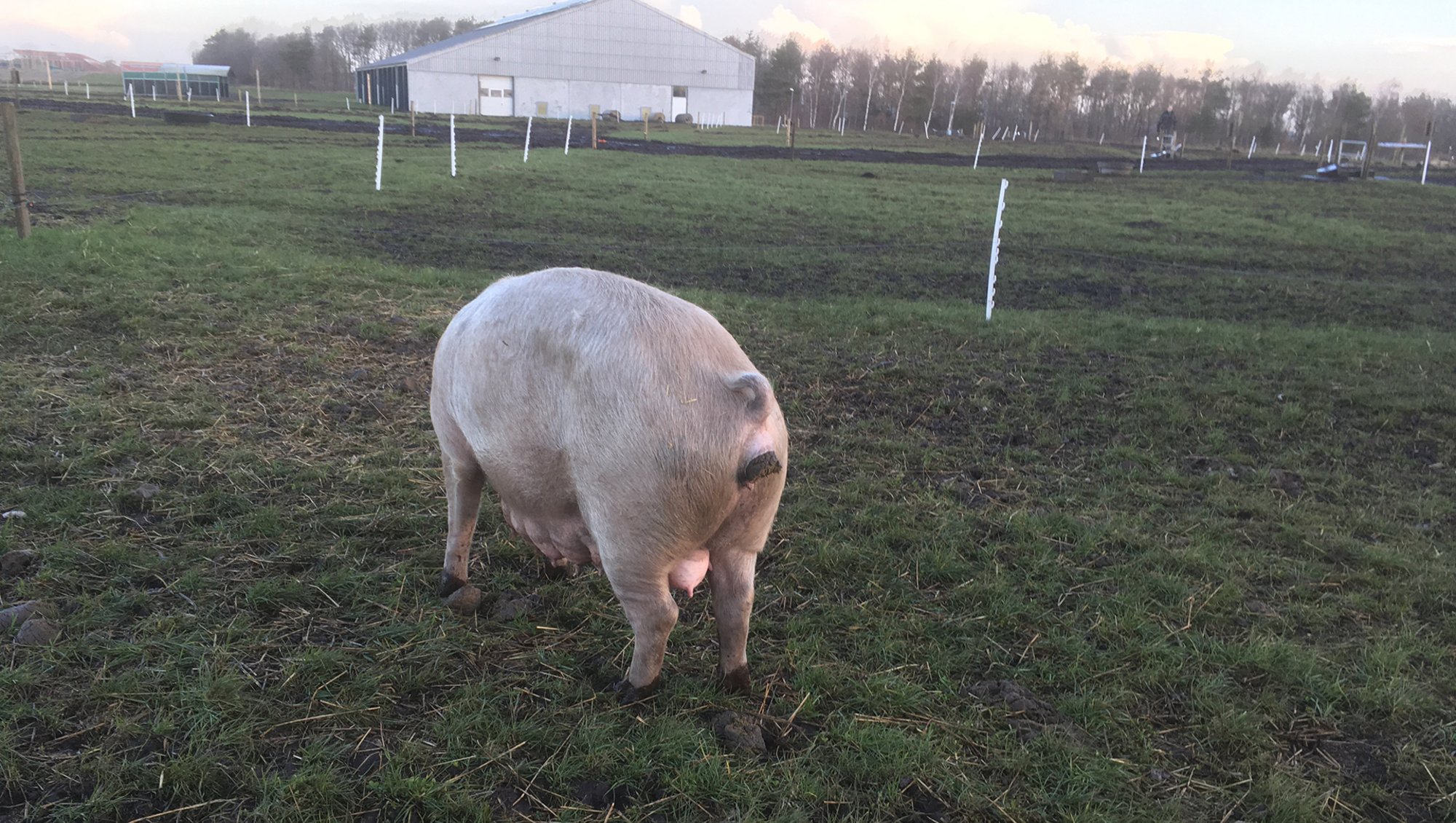WI-FI
WI-FI
- Optimised use of roughage will enhance feed efficiency and reduce climate impact
Organic pig production is challenged both on its environmental and economic competitive position. Low feed efficiency combined with dependency on compound feed based on non-local protein sources increases the loss of nutrients, the climate impact, and the need of farmland.
Thereby both the economy and sustainability of the production are compromised. WI-FI deals with these challenges with the focus of optimizing the winter feed of organic sows using roughage and recirculated waste products.
The Project Purpose
The purpose of the WI-FI project is to give new knowledge about roughage intake as well as the energy- and protein needs of outdoor sows in the winter.
Additionally, new potential types of roughage and recirculated waste products in the market are investigated – and based on this knowledge new sustainable winter-feeding strategies are developed with the right balance of roughage, compound feed, and recirculated waste products. The new feeding strategies are demonstrated in commercial stocks.
Finally, a tool to assess the climate impact on commercial organic pig farms is developed and tested.
| The project step by step |
|---|
| Identification of biomarker for intake of clover grass ensilage and clover grass pulp in plasma or urine as well as utilization of clover grass ensilage and clover grass pulp in organic sows |
| Identification of roughage-intake and -utilization, energy intake, energy needs for thermodulation/maintenance/physical activity/growth and reproduction in organic sows in the Winter |
| Identification of potential new types of roughage and recirculated waste products for use in organic pig production |
UDevelopment of new Winter-feeding strategies and testing it in commercial organic stocks |
| Development of tool for calculation of climate impact in organic pig stocks |
Project period: 2020-2023
Project leader

Maria Eskildsen
Department of Animal Science
Blichers Allé 20
Bygning F20, 3383
8830 Tjele, Danmark
Project partners
- Niels Thing, Krarup Landbrug
- Bertel Hestbjerg, Hestbjerg Økologi
- Simme Eriksen og Line Dinesen Jensen Center for frilandsdyr
- Torben Jensen, Vestjyllands Andel
- Tove Serup, Kristian Knage-Drangsfeldt og Frank Oudshoorn, ICOEL
- Troels Kristensen og Anne Grete Kongsted, AU AGRO
- Maria Eskildsen og Peter Kappel Theil, AU ANIS.


